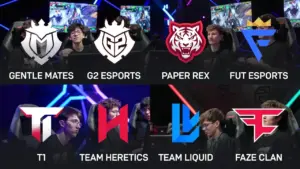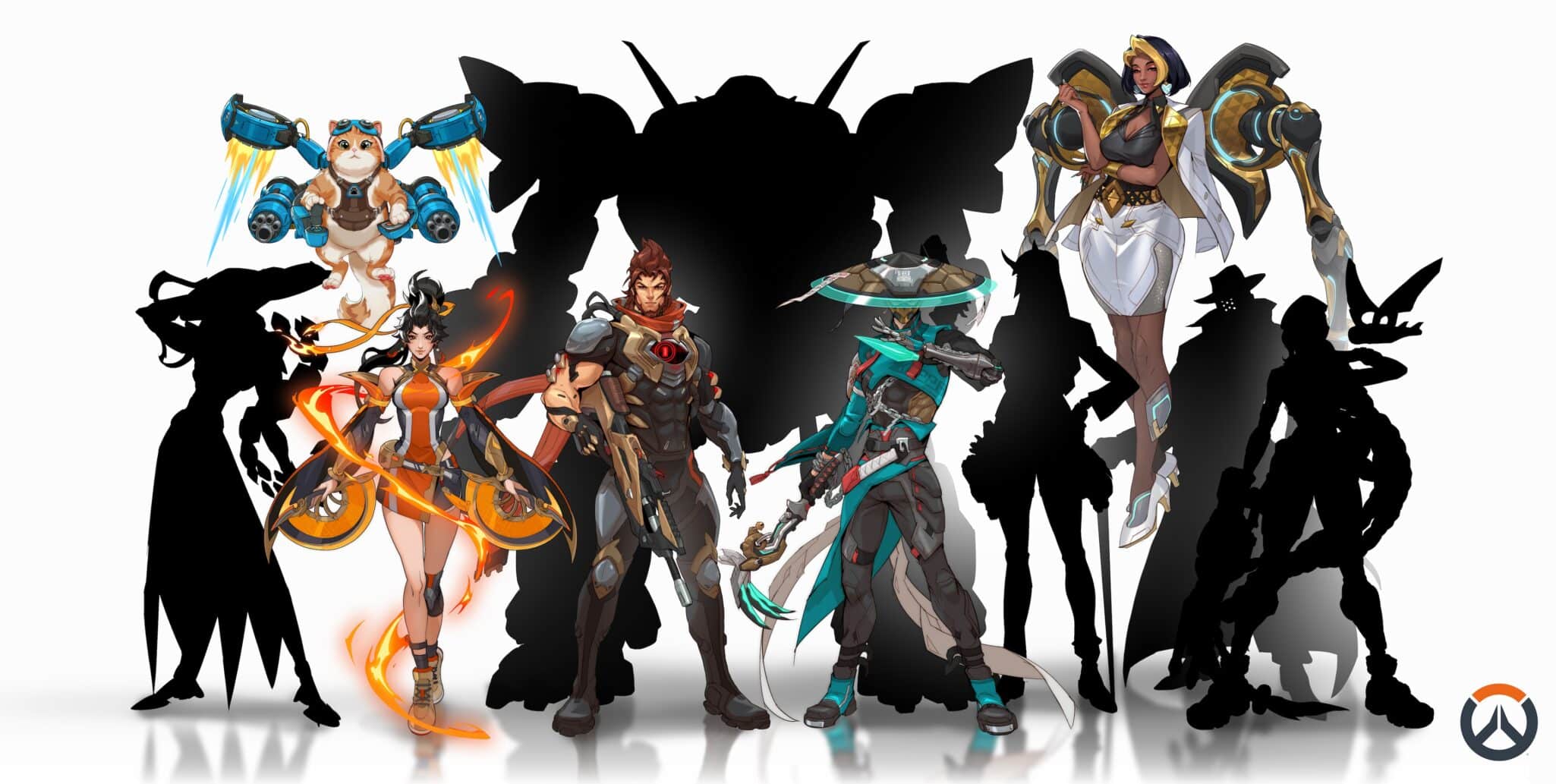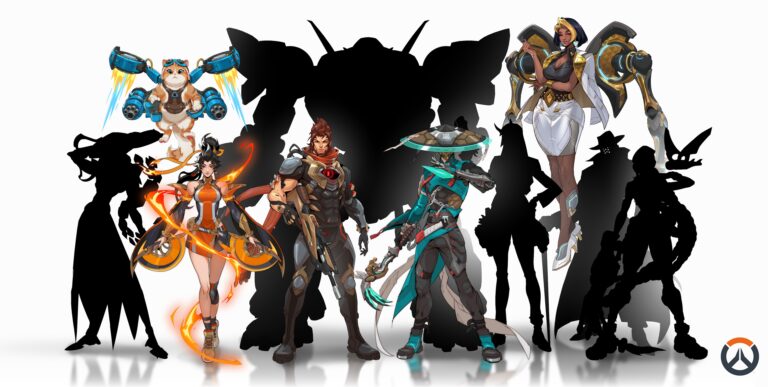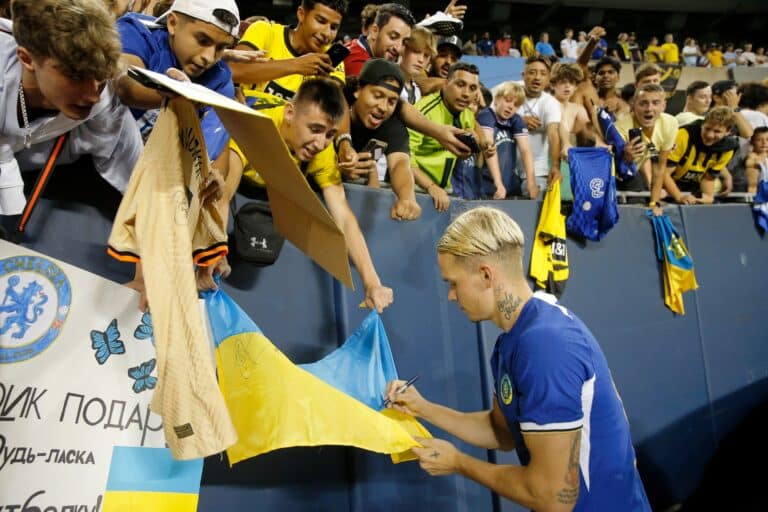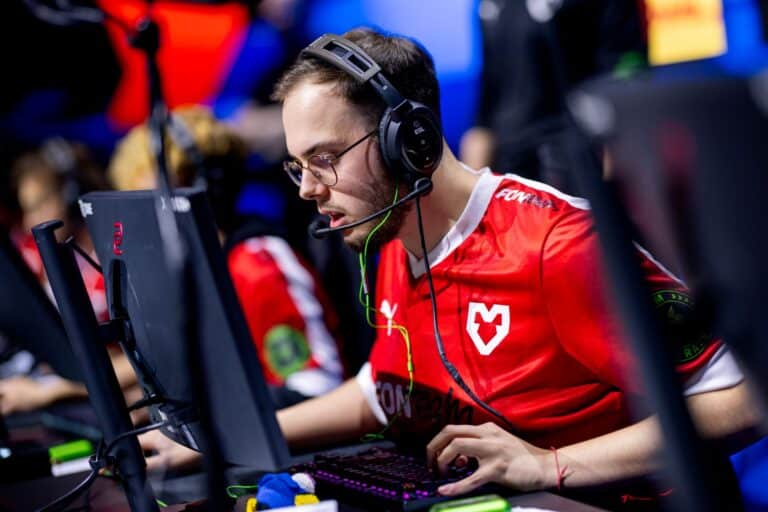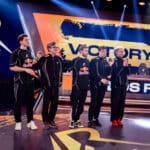Interview with EU League of Legends casters Noa and Carmeline on women in esports: “On one hand I know how important the exposure is for brands and media, and I know that we need it, but on the other hand I get angry when I see them using us for marketing, and only speak up about our problems one day per year”
Jack Stewart, Senior Editor
Last Updated: 19/05/2025
March was Women’s History Month, and the esports industry took the chance to celebrate the many talented and often times overlooked individuals within the space. Some say esports is getting more diverse, but there are still many challenges that women face in esports.
There aren’t many women within the League of Legends European Regional Leagues (LoL ERLs). Ainhoa ‘Noa’ Campos (pictured left) and Carmen ‘Carmeline’ Junquera (right) are two such personalities, with Noa casting the Spanish LVP SuperLiga and Carmeline casting the Baltic Masters (and NUEL’s Women’s University tournament). Megalodontus asks them about their experiences.
Thank you for doing this piece with us. Let’s start off nice and easy, what made you ultimately decide to pursue a career in the esports industry? Was a career relating to games what you always wanted to do after school/education?
Noa: Thank you for considering me for this piece. This is the first time I have the chance to do an interview outside of Spanish media.
I think it was never really a conscious decision. League of Legends burst into my life when I was going through very hard times, personally, mentally and in terms of work. I needed a drastic change because I was extremely unhappy and LoL was a haven of peace for me. Spain was also going through an economic crisis -we go from one to another- so I really had not much to think about. But it’s been a long path here since I was doing this unpaid for years or making very little money out of it in my free time, while combining it with my non-esports job.
I have an arts background and always aimed to do something related to art and video games. My main goal was to become a concept artist one day and work on designing environments and characters, which is something I enjoy a lot. I always knew I wanted to be in video games.
Carmeline: I didn’t know about esports until 2015, when I discovered Origen. Back in the day, I was studying tourism and my plan was to become a tour guide. I love history and explaining things, and it seemed like the right fit for me.
But life gets in the way… and in 2017 I had the chance to travel to Berlin (almost) exclusively to attend the then EU LCS. It was like falling in love. I felt such a passion, such enthusiasm that I even cried and told myself I’d become an event organiser in this industry. However, I’ve always loved communicating and acting, and just couldn’t help wanting to be on stage, so I finished my degree and enrolled in an MBA in marketing, communication and event management.
I wanted to focus on the general aspects of the entertainment industry first and then do something related to esports. So once I finished, I did a course on esports management which really helped me dive into the diverse branches of this business.
Both of you have been in the scene for awhile and have come a long way too. What’s been your biggest achievement and challenge to date?
Noa: I spent years commentating amateur tournaments and my first event working as a full-time LVP employee was during the 2019 World Championship. In my first month as part of the LVP talent line-up, I went to the Palacio Vistalegre to cover the quarter-finals and semi-finals live. I hosted our show and interviewed the players in-person… that was something I never did before, and it was a challenge working to be on the level required for the occasion.
I remember being surrounded by so many incredibly talented people and feeling super small, but also it was the best experience of my entire career. I regard not crumbling during the broadcast an achievement considering how intimidating that moment was!
Carmeline: I can’t choose. In about seven months I made it into a British league as a caster, I’ve worked as host for the Baltic Masters and I’ve met many amazing people. Every single step seemed like the biggest achievement ever and there is so much more to come! If I had to mention something though, it’d be working in English, which is not my first language and being hired to do so several times. That is my biggest challenge too.
“There is no spotlight on female tournaments, so there is no progression in the all-female scene. My thoughts on this are that all-female tournaments should be a safe place for female players to take their first steps into the competitive scene, but teams need to help and look to further the progression of those players.”
NOA
Unfortunately we are still living in a pandemic climate despite live events slowly returning, like epic.LAN’s hybrid event. How have you been dealing with the long hours of remote broadcasts and potential for burnout? Are there many differences compared to live/studio broadcasts?
Noa: My neighbours hate me. That’s the recap.
Our lockdown started in March 2020 and our spring finals that year were done from home. We had tons of technical issues and started three hours later than expected. Considering the series went to five games, we ended up screaming at 2am and it was hard to disguise the knocks from the other side of the wall. I felt so grateful when we were allowed back into the studio, as I really didn’t want to be bothering my flatmates and my neighbours.
About, burnout… I don’t think it’s something exclusive of the pandemic situation. In esports, it’s really hard to disconnect from your job because you are always watching League, playing League or talking about League. Perhaps we don’t do this on purpose, but since this is vocational it becomes quite normal for us, even if it isn’t healthy.
We are on the broadcast three or more days per week depending on the month or tournament(s) we are covering, and when we are home our social media is full of League content. Even on our free days there are matches we have to watch to keep ourselves updated and some use their free time to make content… we just never stop.
Carmeline: For me this is quite new, since I’ve never cast in a studio or otherwise. I had to buy all the equipment: webcam, microphone, streaming lights, a proper chair, you name it. So on one hand, it was expensive, and on the other, it was practical and allowed me to customise my setup to be more comfortable.
However, I’ll admit I have gone through some burnout despite being at home, especially when adapting to new schedules. Being so comfy here can be tricky! Having to separate work from free time while in the same space and learning to differentiate when to do one and the other can make a world of difference. The good side is my family, particularly my mother, I live with her and she makes it so much easier.
March was Women’s History Month. What does this mean to you and what opportunities do you think it presents in terms of talking points for the esports industry?
Noa: For me it’s a time of reflection. We need to remember how we were 50 or even 100 years ago and realise what our mothers and grandmothers achieved for us and appreciate it. We need to remember all the pioneer women in history that made the first steps for us all.
For me it’s also a time of inner contradictions because on one hand I know how important the exposure is for brands and media, and I know that we need it, but on the other hand I get angry when I see them using us for marketing, and only speak up about our problems one day per year. That is frustrating and disheartening.
But we still need that platform to talk about the issues holding women and girls from progressing in esports and becoming professional players, why a lot of women are reluctant to be in front of the camera, hosting, commentating games, or being part of the show. We still need to talk about the harassment towards women in online games, and we need to make it out loud.
Carmeline: I haven’t felt this much joy for this month until now. I find the supportiveness utterly amazing, how we all help each other be recognised and praised, even if we didn’t know each other before. It does feel like sisterhood and it’s so refreshing.
As for the opportunities, I wish brands and teams were as outspoken about the female talent as they are in March. We are not a marketing resource, we are part of the community and should be treated as such. It irks me so much when they do this month’s campaign and then just radio silence for the rest of the year. That’s something I’d like to point out: How we are used by them to be seen positively during March and then it’s back to ‘normal’ again.
“I wish brands and teams were as outspoken about the female talent as they are during Women’s History Month. We are not a marketing resource, we are part of the community and should be treated as such. It irks me so much when they do this month’s campaign and then just radio silence for the rest of the year.”
Carmeline
We saw many social media threads shouting out talented women in our industry during International Women’s Day. Which women in esports do you think are underappreciated and should be more widely recognised?
Noa: I am really happy that a lot of women are thriving in our industry. When I started commentating, I remember there were not many referents I could cling to.
Two of the most underappreciated roles are definitely the writers and translators. The work of women like Ashley Kang and Emily Rand, who do an awesome job, helped me a lot in my beginnings (and still do today).
But I want to shoutout my sisters in Spain who are working incredibly hard, especially with limited paid opportunities. Katarsis is one the fastest translator I have ever seen, Paula is one of the few women writers we have here, and the women who are constantly in front of the camera, like Sara or Koala.
I am very grateful for the women who were a role model to me, but I want to use this interview to encourage the newer women in our industry. Thank you so much, girls. Thank you for being here.
Carmeline: Well… definitely Frankie Ward. She is well known in the CSGO scene, but I feel like she doesn’t get enough praise for her work. Simona Daili from Challengermode and both Giniro and Geomancy from NUEL are definitely underappreciated. They do so much behind the scenes and I wouldn’t be here without them.
Do you sometimes feel the pressure of needing to represent women in esports and, if so, how do you deal with that?
Noa: I remember the first time a girl told me I was a role model to her and the first time someone told me I was a referent for all the women… It was intimidating as fuck. The answer to how I deal with the pressure is that I don’t deal with it at all. If I’m being totally honest, I don’t want to think about representing women in esports, that’s something way bigger than me.
I only want to do my job well, that’s the only thing I keep in my mind, otherwise I would shatter under the pressure of such responsibility. Also, I am a disaster in a lot of things so I would be a terrible representative!
Carmeline: Oh, the pressure. Felt it from the first day, since I started casting on a women’s-only tournament. On one hand, I was happy to contribute to the empowerment of our community but I was also really worried about what people would think of me. I saw myself as inexperienced and awkward and thought: ‘Is this what they’ll see? Will they associate women in esports with me and my work?’
I wanted to bring diversity but I didn’t want to be judged for being a woman, I just wanted to be seen as me: Carmeline. So to sum it up, yes it was difficult in the beginning, but it did get easier throughout the months and having amazing travel companions also made it better.
Related article: Kripparrian and RegisKillbin give up Crossroads Inn-vitational slots to help make Hearthstone more diverse following debate around inclusivity and sexism
Being a woman in this industry can be difficult, especially when it comes to unreasonable or sexist online comments. How do you deal with these and how do you think we can teach people to be better?
Noa: I have passed through several hate waves on social media to the point that it has become almost impossible to obtain proper feedback from Twitch chat or Twitter. It’s hard to distinguish what is real feedback and which comments come from hate and misogyny. There have been moments where I just couldn’t deal with all the hate and considered quitting.
Nowadays, I am grateful because I have tons of people who support me, and I have learnt to appreciate the love than the hate. It’s still a work in progress and it’s not easy; hate takes root in your brain more easily than love. The mute button on Twitter is my best friend, and I don’t regret muting indiscriminately when I see someone being openly misogynistic or when I saw someone insulting my colleagues. If those comments are not going to help me improve in my job and they are gonna just bring me concerns, why not just erase them?
I am working on making my social media feed a place that’s healthy for my mind.
Carmeline: I honestly don’t pay attention to those comments, probably because I haven’t been noticed enough to be targeted by the people who spit that kind of hate. In any case, even though it’ll be difficult, I’m ready for it. I can accept constructive criticism but I will not stand by comments that attack me as a woman, there’s no excuse for that behaviour.
Ultimately, we can’t teach people to be better if their upbringing doesn’t work in that direction. I do, however, think that everyone can contribute by stopping them right in their tracks and pointing out when a sexist comment is made, allowing them to see that acting like that is not acceptable by modern day standards.
“People always talk about how excellent a woman has to be to get in a professional team and they would never consent to a mediocre female player getting an opportunity, while we have plenty of mediocre male players and everyone seems to be perfectly fine with that.”
Noa
What is the one argument, viewpoint or cliché about women in esports that frustrates you no matter how many times you see it? Why do you think it keeps being said?
Noa: That there are way fewer women who are not professional players because they are just not as good as men at playing video games. This argument shows how narrow that person’s perception of reality is. It’s important to see the bigger picture… and that picture is huge.
Carmeline: The “she’s there because she is a woman/pretty/dated so-and-so”. Who cares? Okay, many women have gotten in the industry due to their connections, but so have men and that’s seemingly never a problem. Besides, if you aren’t good or work hard at whatever you do, you won’t get far anyways.
I honestly think this is perpetuated by those who can’t or won’t accept that, hey, we are just as capable as men and they have to justify their hate with whatever they can get their hands on. The most irritating is the dating one. If you are a woman with a partner who happens to be in the industry too, brace yourself, because that’s what they are going to look at.
Heather ‘sapphiRe’ Garozzo recently said in a piece with Esports Observer that she thinks things are getting better for women in esports. However, we still see a lack of women players at the top level. What do you think of initiatives like AnyKey, Valorant Game Changers and EG’s mixed team for Valorant, for example, and the view some have that diversity initiatives like this are ‘forced’ and that ‘if a woman is good enough she’ll get picked up by a team anyway’.
Noa: I wish initiatives like these came from Riot at the beginning of LoL. If so, I’m sure we would have a lot more women playing competitively. Some would call it ‘forced’ but the reality is that being in a mixed team is not something that comes naturally to the majority of the boys competing. It’s ‘normal’ considering how we’ve been educated our entire life, but still not acceptable, and that is why we need to focus on the next generations and do our best for them.
Still, for those who consider mixed teams ‘forced’, I’m sorry but I can’t understand how mixing boys and girls in a team is more forced than an all-male line-up. People always talk about how excellent a woman has to be to get in a professional team and they would never consent to a mediocre female player getting an opportunity, while we have plenty of mediocre male players and everyone seems to be perfectly fine with that.
This article always comes to my mind when someone asks me this question.
Carmeline: Diversity initiatives wouldn’t be needed if women were seen as equals in esports. But that’s not the case and for women who play in higher ranks, no matter the esport, are accused of being boosted. Would I be comfortable competing in a more reputable league, being exposed to nasty comments because of my gender? How can I promote my work by competing without having someone else – or myself – going the extra mile to shelter me?
What I am trying to say is that as a woman, I’d have to take so many extra steps to play comfortably. You are always going to be exposed to criticism, but this is just hate, and the kind that can destroy your self-esteem. I’m not a player, but I’d prefer to remain anonymous than expose myself to that, and I guess that’s what many other women feel like.
Related article: Rix.GG announce ‘Lightning’ Valorant roster as part of drive to see women and marginalised gender players ‘compete at the highest levels of esports’
A few months ago, Sayna, a Prime League 1st Division botlaner, spoke up about her thoughts on the state of women’s LoL scenes. One of her biggest talking points was how all-women tournaments can make players ‘too comfortable’, and that these leagues should be working towards normalising mixed teams. What are your thoughts on this?
Noa: I agree with Sayna on how all-women tournaments might make players too comfortable to risk transitioning into mixed teams. But let’s be honest, the ERLs are the same for a portion of the players. They are similar to a comfort zone for players who are not or not yet at the level required for the big leagues. The difference is that ERL or amateur mixed usually won’t give a chance to the best female players in an all-female tournament, since they don’t scout there, while the best ERL players are always in their sights.
There is no spotlight on these female tournaments, so there is no progression in the all-female scene. My thoughts on this are that all-female tournaments should be a safe place for female players to take their first steps into the competitive scene, but teams need to help and look to further the progression of those players.
Carmeline: While I agree with Sayna about mixed teams, in reality how many women are willing to take that step? I imagine the fear of failure adds to the fear of being judged just for being a woman and it can seem so appalling, like something you’ll have to go through either way.
For example, I really love NUEL’s Womens LoL tournament, because there is so much talent there and it provides a safe platform to show it off.
“On one hand, I was happy to contribute to the empowerment of our community but I was also really worried about what people would think of me. I saw myself as inexperienced and awkward and thought: ‘Is this what they’ll see? Will they associate women in esports with me and my work?'”
Carmeline
Before we end, of course the big event will be the Mid-Season Invitational (MSI) 2021 taking place in Iceland this May, and the LEC was once again a wild, wild ride. What are your takeaways from the spring season and how do you think the new champions Mad Lions will fare?
Noa: Everything is going to be Elyoya gap and other regions need to remember this!
Jokes aside, I think last year at Worlds we learnt as LEC fans that we need to keep our expectations as realistic as possible. I think Mad Lions have a group they should be able to exit, but we need to keep in mind how young these players are and how intimidating MSI could be.
Carmeline: I must declare I’m part of Mad Lion’s unofficial fanclub, so I’m not impartial at all! But have you seen them play? That reverse sweep??? That’s a yes for me and a sign of what’s to come to Iceland… if the volcano allows it.
My takeaway is that no matter how long your team has been reigning, new blood can easily come and replace you. Also, that ERLs aren’t just ‘useless’, they are, in fact, our biggest talent factory and they should be praised for it!
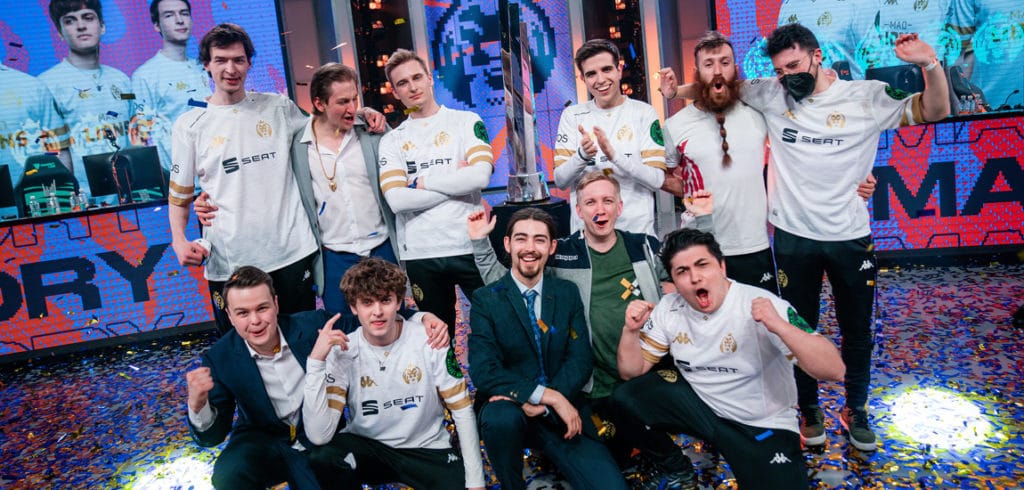
We’ve come to the end of the interview. Is there anything else you’d like to add? Shoutouts to any awesome colleagues or any future goals perhaps?
Noa: Shoutouts to my colleagues in the LVP, they work super hard and deliver in every show, sometimes with limited resources too. We have a lot of talent in the Spanish scene that is not recognised enough and that makes me sad, so shoutouts and love to all my colleagues.
About my future goals, I am focused on improving in every aspect of my job, step by step, but I am aiming higher than where I am now. Let’s see what happens in the future.
Carmeline: I want to mention Viperoon, whom I’ve been co-casting with for a while, and I couldn’t ask for a better companion. Also, shoutout to Josh, our Baltic Masters producer who taught me so much this past split.
A year and a half ago I said I saw myself working in esports in around five years, and hosting if possible. I’ve made it, so now my goal is getting to Berlin. Maybe sooner, maybe later, but I am hopeful and excited about it.
Further reading:
- Froskurinn Twitter thread highlighting various women in esports
- Frankie Ward blog post on being a woman in esports
- Sjokz calls out comments on people’s appearance
- The initiatives making esports more inclusive including Women in Esports
You can follow Noa and Carmeline on Twitter and tune in to the Mid-Season Invitational on Twitch from May 6th.
Essential UK Casino & Betting Guides
Looking for the best casinos or betting sites? Below you’ll find our recommended guides that players in the UK are loving right now.
- Top Casinos Not on Gamstop
- Fast Withdrawal Casino Sites
- Top Online Casinos UK 2026
- Best Bitcoin Casinos in 2026
- New Casinos in the UK
Jack Stewart, Senior Editor
In my seven years of esports writing, I've introduced esports coverage to newspapers, interviewed some of the biggest names in the industry, and driven viewers mad with the puns in my YouTube scripts. I'm most proud of the latter.
Stay Updated with the Latest News
Get the most important stories delivered straight to your Google News feed — timely and reliable





From breaking news and in-depth match analysis to exclusive interviews and behind-the-scenes content, we bring you the stories that shape the esports scene.
Monthly Visitors
User Satisfaction
Years experience

